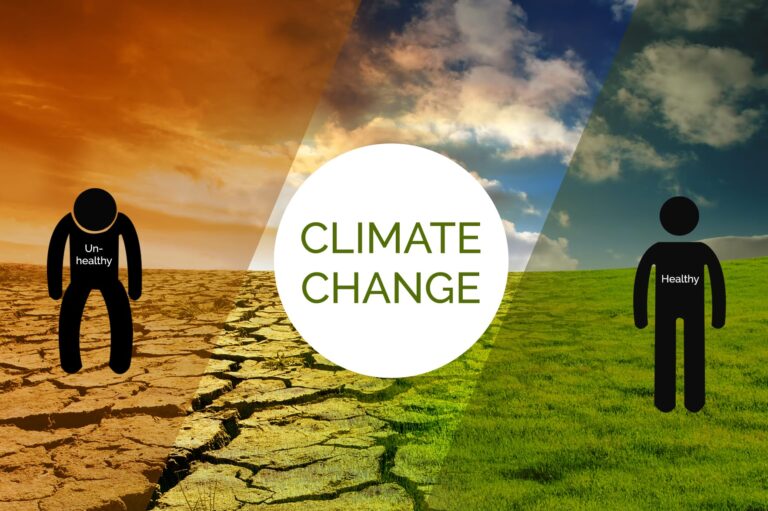Climate change has become one of the most serious global issues in recent decades. In addition to having an impact on the environment and nature, climate change also has a significant impact on human health. In this article, we will discuss some examples of climate change’s impact on human health and some strategies to address or mitigate those impacts.
- Excessive Heat Weather and Heart Disease. An increase in air temperature can significantly affect heart health conditions. Dehydration and exposure to extreme heat can potentially trigger damage to the brain and affect human behaviour.
- Acute Respiratory Infections and Pneumonia. Extreme weather, both hot and cold, can cause the body’s immune system to decrease, making it susceptible to disease. During the pancaroba/ transition season period, bacteria in the body will also be trapped and cause immunity to decrease.
- Climate Change and Water-Related Diseases. High rainfall can threaten clean water supplies and increase the risk of diseases such as acute dehydration and diarrhoea. Diarrheal disease alone causes death in approximately 760,000 children under five every year.
- Extreme Cold Weather and Decreased Immunity. Excessive cold weather can also cause the body’s immune system to decrease, making it susceptible to disease. During the pancaroba/ transition season period, humans cannot always leave the house, and bacteria in the body will also be trapped and cause immunity to decrease.
- Psychological Illness. Extreme weather changes can cause trauma and stress for affected victims. In addition, climate change can also increase the risk of extreme weather and natural disasters that occur more frequently.
The things that can be done to mitigate the impact of climate change on health are, 1) Planting trees can help reduce greenhouse gas emissions and improve air quality. 2) Environmental conservation such as reducing waste, saving energy, and reducing the use of private motor vehicles can help reduce the impact of climate change. 3) Reducing the use of private motor vehicles can help reduce greenhouse gas emissions and air pollution. 4) Implementing the Reduce, Reuse, Recycle system can help reduce the amount of waste and save natural resources. 5) Optimizing immunization and facilitating access to health services can help reduce the impact of climate change on children’s health.
Additionally, in the face of climate change, it is important to raise public awareness about the impact of climate change on health and develop effective strategies to mitigate those impacts. With cross-sectoral cooperation and government commitment, we can reduce the impact of climate change and ensure human health is maintained.


